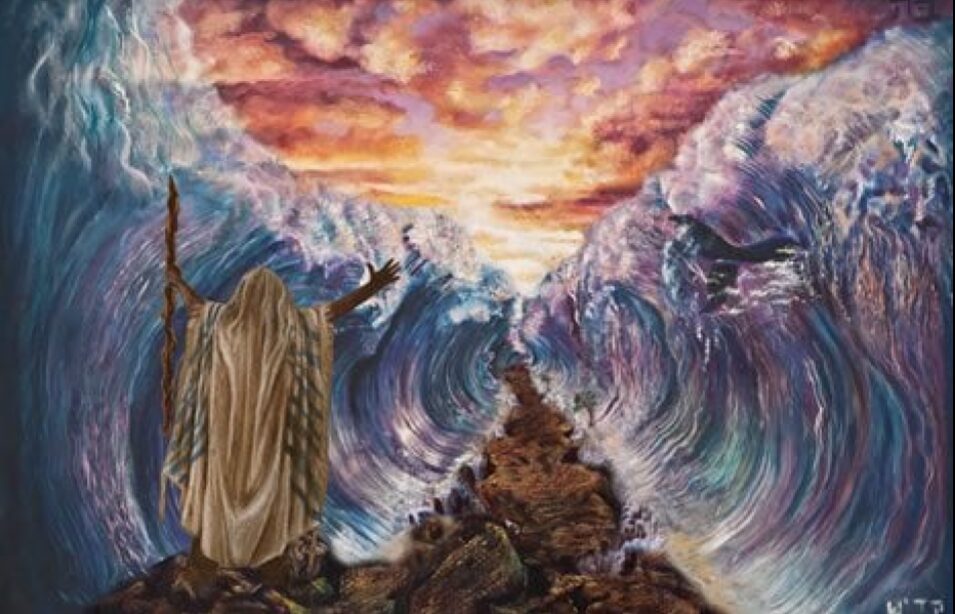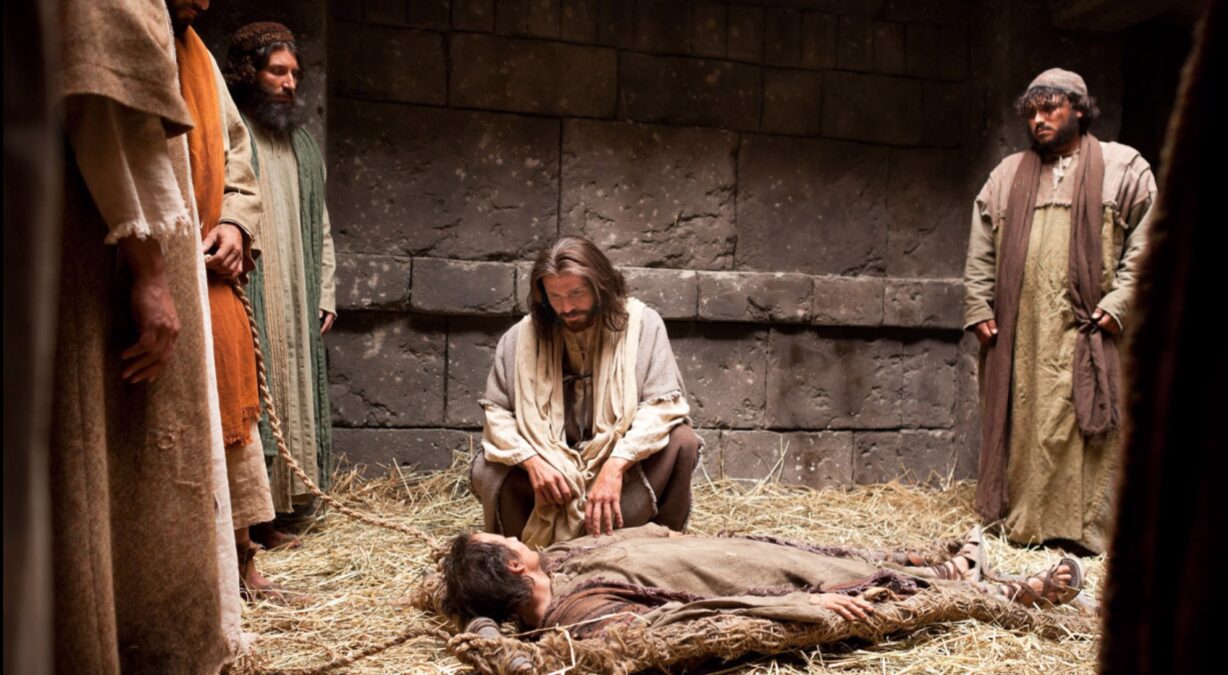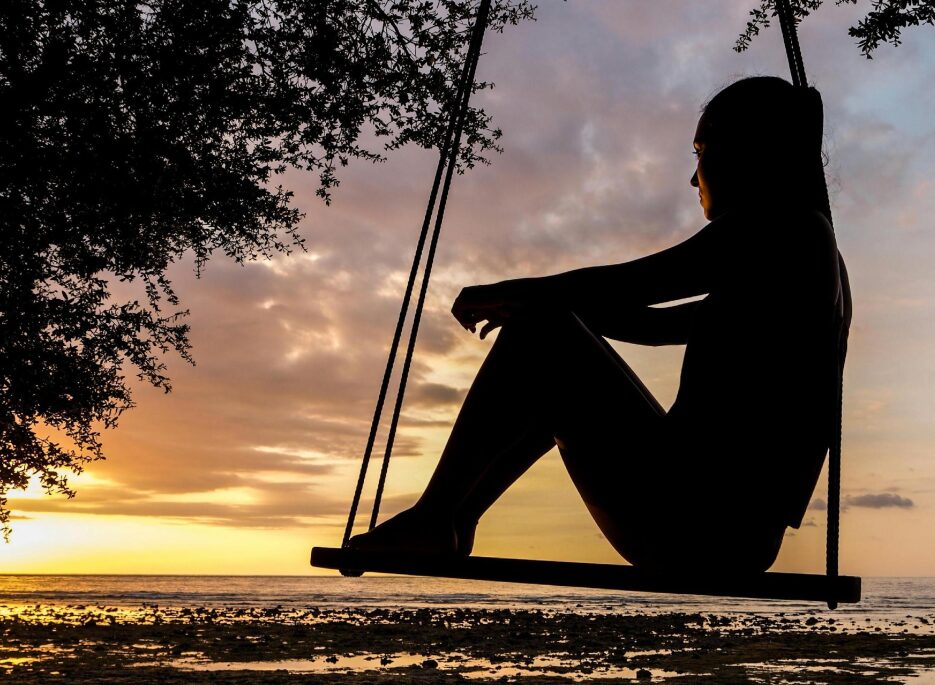Being Brave
This is probably one of those stories that almost everyone, whether they’re in church or not, has heard of.

A lot of you may even have that image of Charlton Heston in the Ten Commandments movie. Or you may have seen Sight and Sound’s version of it with the walls of water. Quite something to experience.
This story is meant to help us understand something about God, about who God is. God is one who hears the cries of God’s people. God liberated the Israelites because he heard them cry out in their slavery. God is one who is present with us. In our hard times and throughout our lives, and God is one who sends us freedom, who wants freedom from slavery for us.
I think we have taken this story and we have turned it into a hero story because we like hero stories.
God as a hero, that’s a good thing in and of itself, except when we think that God has to do all the work. God will be with us and God will help us. But when we think that we can’t do anything until God does it all, and I think we’ve missed the point.

That’s where I think God sent Jesus to help us understand that God wasn’t just going to come back and vanquish the Roman Empire. God wasn’t going to take them out of their own type of slavery with Jesus. But again, God intervened. Not in this way that was vanquishing armies, but in this quiet way that was calling us to be about new life, to be about freedom, to let go of the things that have enslaved us.
I’m going to try and make a turn here with you. I want you to think of this as a metaphor. I want you to think of this story metaphorically, and I want us to think about what are the things that enslave us now.
The Exodus story is about liberation, is about freedom. God wants us to be free. God wants us to be able to enjoy this wonderful life that God gave us.
But we are tied to sin and to greed, to power, and to control.
What are the things that are enslaving you?
That’s what I want you to think about. then I want you to think about what it is about the water. The water is significant in this. Yes, the Israelites walked on dry land. The water was moved out of their way. They had to go through the water. Even when they come back from the wilderness, 40 years later, they have to cross the Jordan. You have to go through the water to experience the freedom.
So what does the water of baptism mean to you? These are big things, heavy things. important things. But for me, the water of baptism is the gift of life. It is the gift of forgiveness. The drops of mercy raining down on us.

I don’t think I have ever been as happy to see rain as I was on Friday. I enjoyed it yesterday too. But Friday, I just stopped and went out and sat on the porch and watched it rain. Because we were parched. If you weren’t parched, our earth was parched.
My garden is parched. The corn, the leaves are folded and growing up almost like it’s a yucca plant. They’re pointed instead of being open. Because it’s starved for nourishment, for a drink. Just like we need a drink. We need the water. This is the water of life, water of salvation.
It’s not a surprise that we talk about baptism as a death and then a resurrection. What do you need to be resurrected from?

Or what chains do you need to break? What baggage do you need to let go of?
Our defenses are like the armor and the chariots of the Egyptians. They weigh us down and they get us caught in the mud. Those defenses that have may have worked really well for us at times in our lives, getting in the way of us experiencing true freedom.
Each of us is different. Only you know your path and only you know your burdens. I’ve said it many times that we come to church to lay our roots at the cross. That’s what Jesus wants us to do. And we tend to do that during worship. Then when we worship, we say, “It’s okay, God, I’m all right. I’ll just take it with me,” because we want to trust our own power.
But today we also have the beauty of communion where we are offered the bread of life. We don’t have to go into the water, but we can come to the table and we can remember that this simple loaf becomes more than a simple loaf. This becomes the way forward into real life. It can break the bonds of our slavery.
It can take away all that has us stuck, but we have to let our defenses down when we come to the table.
So the question is yours. What will you do? What are you willing to let go of? What baggage are you willing to leave here? What bonds do you want to break that are no longer healthy for you?
Thank you, gracious God, for all the ways that you come to us to bring a new life, to bring nourishment, to bring encouragement, to bring freedom and justice. May it be so.